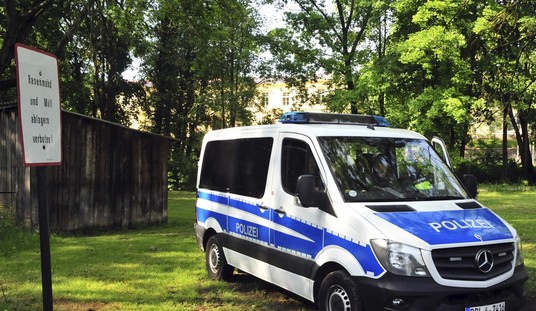Iran has embarked on a big public-relations push to drive a wedge between the West and its trading partners in China and Russia this week. While warning the US that the West’s “last chance” for progress on talks had arrived, Mahmoud Ahmadinejad invited his friends to tour Iran’s nuclear facilities as a way to dodge the question of UN inspections. They RSVP’d in the negative, as did the EU:
Iran’s proposal for a tour of its nuclear sites floundered on Thursday after China effectively rejected the invitation and Russia cautioned such a trip could never replace U.N. inspections or talks between Tehran and world powers.
The European Union has turned down Iran’s offer to allow selected ambassadors accredited to the U.N. nuclear watchdog to visit two nuclear installations while snubbing those from the United States, Britain, France and Germany. …
Just hours later, Russian Foreign Minister Sergei Lavrov told reporters in Moscow that such a visit could never replace regular inspections from the IAEA or talks with major powers on Iran’s disputed nuclear program, echoing the EU position.
“Such a visit should in no way at all be seen as a substitution for IAEA inspections,” Lavrov said, though he said the invitation deserved attention. He did not give a clear indication of whether Russia would agree to the tour.
Iran’s not calling off the nuclear tour, however, because other nations have agreed to join the festivities. Which nations? Why, those beacons of truth and justice — Egypt, Cuba, Venezuela, and Syria. The latter two may as well take notes for their own efforts to go nuclear.
According to the Reuters report, China had been told by “Western diplomats” that it would be a bad idea to join the tour on the eve of Hu Jintao’s visit to the US. Neither Moscow or Beijing want to make an appearance without some sort of political cover from the EU anyway, but China especially wants to keep its appointment in the US for domestic political purposes. Had the White House canceled the meeting or even just postponed it after such a visit, it would have been somewhat embarrassing for China’s government, which has built up the US summit meeting.
The US isn’t buying the “last chance” rhetoric, either:
Iran has escalated its routine bluster in the run-up to next week’s nuclear talks in Istanbul, suggesting the Jan. 21-22 meeting could be a “last chance” for major powers to strike a deal. On Wednesday, it had its reply from the United States’ top diplomat: Get serious.
Iran should “come to the meeting prepared for . . . serious discussions,” Secretary of State Hillary Rodham Clinton said after meetings with Arab leaders in Qatar’s capital, Doha.
U.S. officials have spoken confidently in recent days about the heavy toll that sanctions are having on Iran’s economy, and some have expressed optimism that the country’s ruling clerics may soon seek a bargain that would include permanently abandoning its pursuit of nuclear weapons. But publicly, Iran has remained combative, as shown by the “last chance” warning this week by its top nuclear negotiator, Ali Asghar Soltanieh.
The nuclear tourism ploy seems both desperate and amateurish, especially after the global and public rejection it has received. Hopefully, that means that the mullahs are starting to get a little desperate about the economy and their ability to keep their grip on power.








Join the conversation as a VIP Member